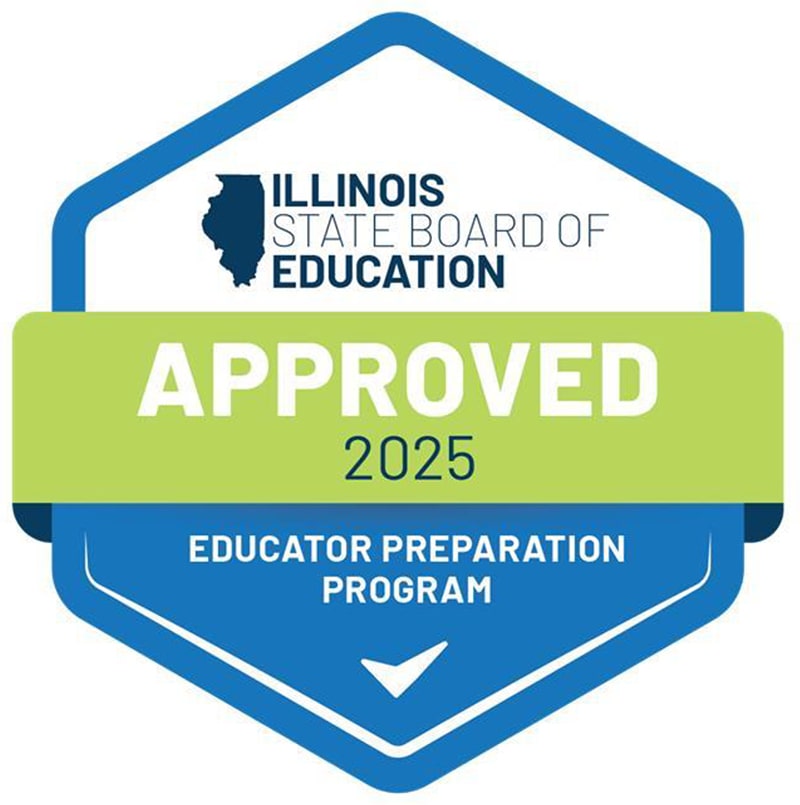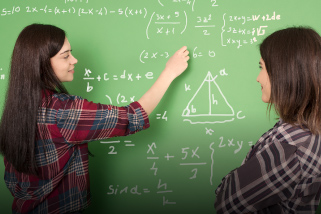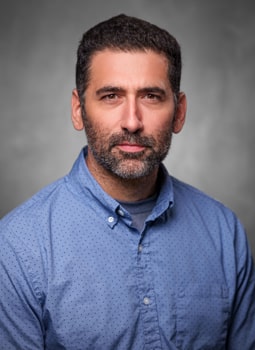B.S. in Secondary Education | Mathematics Education (9-12)
Inspire a Lifelong Love of Learning
The Secondary Education program at Saint Xavier University prepares candidates to teach grades 9-12. Through student teaching experience, fieldwork observation and other opportunities to apply theory to practice, candidates will engage in an interactive and dynamic learning experience that will enable them to deliver a high-impact instructional experience to their future students. The Secondary Education program integrates courses and field experiences that will prepare you to teach in a variety of educational settings, including public and private schools. As a secondary education major, you will develop an in-depth understanding of your content area. Additionally, students may develop advanced skills, including communication, patience, creativity, enthusiasm, confidence, dedication, conflict resolution, organization, classroom management, time management, critical thinking, leadership, and teamwork.

Why Earn Your B.A. in Secondary Education?
The education profession is one of the most rewarding and fulfilling careers. Teachers serve as the cornerstone of a student's educational journey through their development as they become critical thinkers and problem solvers.

About the Program
The Mathematics Secondary Education program is your gateway to teaching high school students (grades 9-12) the beauty and logic of mathematics. In this program, you'll dive into advanced topics such as modern geometry, abstract algebra, calculus, and probability while building the analytical, problem-solving, and communication skills needed to inspire and lead in the classroom.
In the Mathematics Secondary Education program, you will engage in high-impact practices that prepare you to become a confident, effective educator. You'll gain practical experience by participating in hands-on teaching experiences and classroom observations, where you'll apply problem-solving techniques and analytical thinking in diverse educational settings. Collaborative learning projects, peer discussions, and presentations will help you refine your ability to communicate complex ideas clearly, ensuring you're ready to inspire students in your future classroom.
Graduates of the Mathematics Secondary Education program will demonstrate advanced mathematical knowledge in areas such as geometry, algebra, calculus, and statistics, enabling them to teach high school students effectively. Additionally, graduates will be skilled in communicating complex mathematical concepts clearly and confidently, creating engaging lessons that foster student understanding and critical thinking. With hands-on teaching experience, they will be prepared to design effective curricula, manage diverse classrooms, and assess student progress in mathematics.
At the undergraduate level, Saint Xavier University is one of the seven largest providers of teachers in Illinois. Saint Xavier University's Education Division has a long and successful history of preparing students for careers in teaching with a curriculum that guides teacher candidates to become scholars, lifelong learners, leaders, and reflective practitioners. Rooted in the values of the Sisters of Mercy, our mission emphasizes compassion, service, and social justice. As a student in the Education Division, you'll be inspired to integrate these values into your teaching practice, making a meaningful impact on your students and community. You'll learn to educate with empathy, advocate for equity, and lead with a heart committed to service.
SXU offers a variety of education endorsements designed to expand the expertise of teacher candidates and practicing educators. Endorsements are aligned with Illinois state standards, ensuring that educators are well-prepared to meet the needs of students in diverse classroom settings.
Mathematics
Find out more about the Mathematics programs of study here at Saint Xavier University!
Learn More
Quick Links
Request Information
Want to know more about undergraduate programs at Saint Xavier University? Please fill out the form below!
Contact the Office of Admission
- 773-298-3050
- Toll Free: 844-GOTO-SXU (844-468-6798)
- Fax: 773-298-3076
- Email: admissionFREESXU
- M-F: 8:30 a.m. to 4:30 p.m.
Other Undergraduate Education Programs
Contact us






